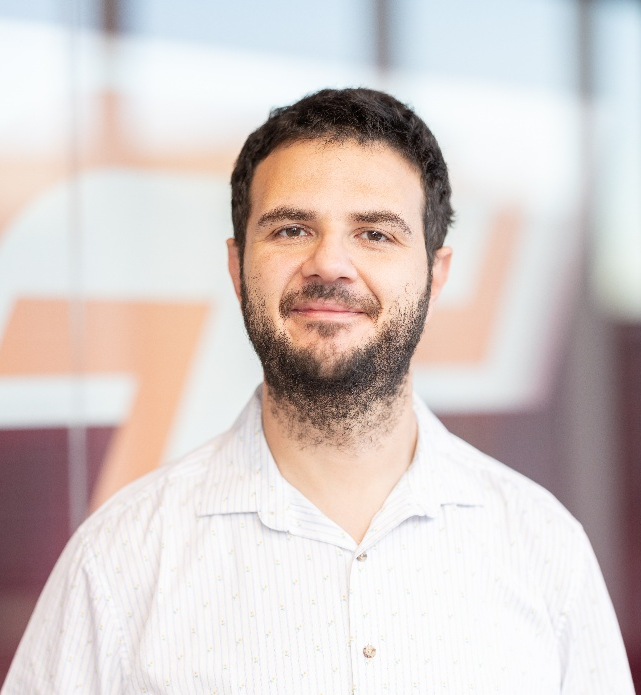

Walid Saad, Virginia Tech, USA
Wednesday, October 29, 2025
16:00 – 17:00 IRST
Title: Artificial General Intelligence (AGI)-Native Wireless Systems with Common Sense
Abstract
Next-generation wireless systems, such as 6G and beyond, are expected to tightly embed artificial intelligence (AI) into their design, giving rise to what is termed AI-native wireless systems. Remarkably, despite significant academic, industrial, and standardization efforts dedicated to AI-native wireless systems in the past few years, even the very definition of such systems remains ambiguous. Presently, most endeavors in this domain represent incremental extensions of conventional "AI for wireless" paradigms, employing classical tools like autoencoders or large-language models to replicate established wireless functionalities. However, such approaches suffer from inherent limitations, including the opaque nature of the adopted AI models, their tendency toward curve-fitting, reliance on extensive training data, and limited generalizability to new, unseen scenarios and out-of-domain/out-of-distribution data points. To address these challenges, in this talk, we unveil a bold, pioneering framework for the development of artificial general intelligence (AGI)-native wireless systems. We particularly show how the fusion of wireless systems, digital twins, and AI can catalyze a transformative paradigm shift in both wireless and AI technologies by conceptualizing a next-generation AGI architecture imbued with "common sense" capabilities, akin to human cognition and founded on three components: a) perception, b) world model, and c) action-planning. This architecture will empower networks with reasoning, planning, and other human-like cognitive faculties such as imagination and deep thinking. We first define the technical tenets of common sense and, subsequently, we demonstrate how the proposed AGI architecture can instill a new level of generalizability, explainability, and reasoning into tomorrow's wireless networks. We then present our recent key results, rooted in AI, theory of mind, digital twins, and game theory, laying the groundwork for the realization of AGI-native wireless systems, and illustrating how our designed framework reduces data volume in networks while enhancing reliability, crucial for next-generation wireless services like connected intelligence, extended reality, and holography. We conclude with a discussion on the exciting opportunities in this field that can help redefine the intersection of wireless communications and AI.
Biography
Walid Saad (S’07, M’10, SM’15, F’19) received his Ph.D degree from the University of Oslo, Norway in 2010. He is currently the Rolls Royce Commonwealth Professor in Digital Twin Technology and a Professor at the Department of Electrical and Computer Engineering at Virginia Tech, where he leads the Network intelligEnce, Wireless, and Security (NEWS) laboratory. His research interests include wireless networks (5G/6G/beyond), machine learning, game theory, quantum communications/learning, security, UAVs, semantic communications, cyber-physical systems, and network science. Dr. Saad is a Fellow of the IEEE. He is also the recipient of the NSF CAREER award in 2013, the AFOSR summer faculty fellowship in 2014, and the Young Investigator Award from the Office of Naval Research (ONR) in 2015. He was the (co-)author of twelve conference best paper awards at IEEE WiOpt in 2009, ICIMP in 2010, IEEE WCNC in 2012, IEEE PIMRC in 2015, IEEE SmartGridComm in 2015, EuCNC in 2017, IEEE GLOBECOM (2018 and 2020), IFIP NTMS in 2019, IEEE ICC (2020 and 2022), and IEEE QCE in 2023. He is the recipient of the 2015 and 2022 Fred W. Ellersick Prize from the IEEE Communications Society, the IEEE Communications Society Marconi Prize Award in 2023, and the IEEE Communications Society Award for Advances in Communication in 2023. He was also a co-author of the papers that received the IEEE Communications Society Young Author Best Paper award in 2019, 2021, and 2023. Other recognitions include the 2017 IEEE ComSoc Best Young Professional in Academia award, the 2018 IEEE ComSoc Radio Communications Committee Early Achievement Award, and the 2019 IEEE ComSoc Communication Theory Technical Committee Early Achievement Award. From 2015-2017, Dr. Saad was named the Stephen O. Lane Junior Faculty Fellow at Virginia Tech and, in 2017, he was named College of Engineering Faculty Fellow. He received the Dean's Award for Research Excellence from Virginia Tech in 2019. He was also an IEEE Distinguished Lecturer in 2019-2020. He has been annually listed in the Clarivate Web of Science Highly Cited Researcher List since 2019. He currently serves as an Area Editor for the IEEE Transactions on Communications. He is the Editor-in-Chief of the IEEE Transactions on Machine Learning in Communications and Networking.
Paper Submission Deadline
2025-07-22Extended Paper Submission Deadline
2025-08-01Paper Submission Hard Deadline
2025-08-15Notification of Acceptance
2025-09-15Deadline for revising papers
2025-09-28Camera-ready Deadline
2025-10-14Workshop Dates
2025-10-20 TodayRegistration Deadline
2025-10-24 4 DaysConference Dates
2025-10-28 8 Days